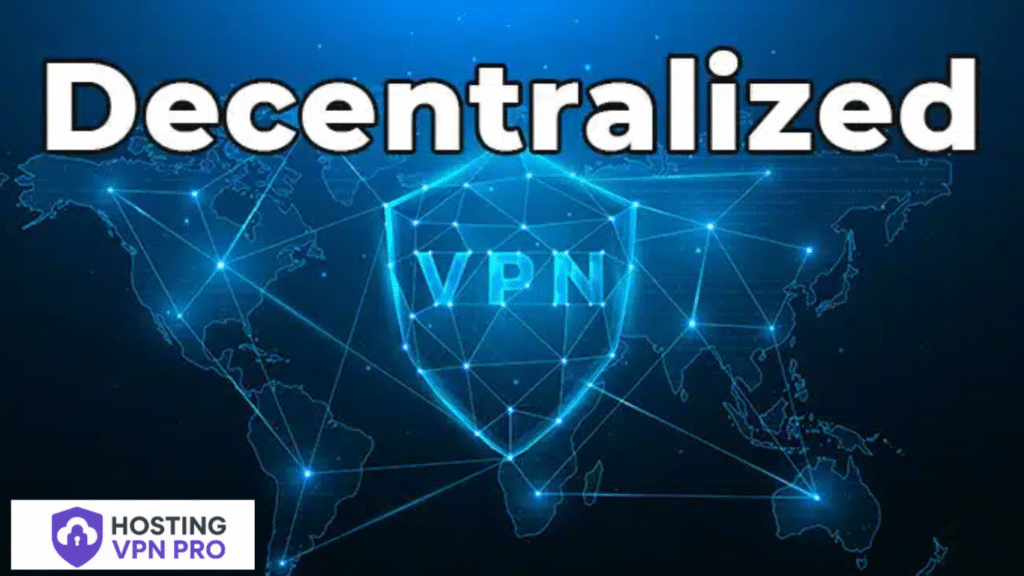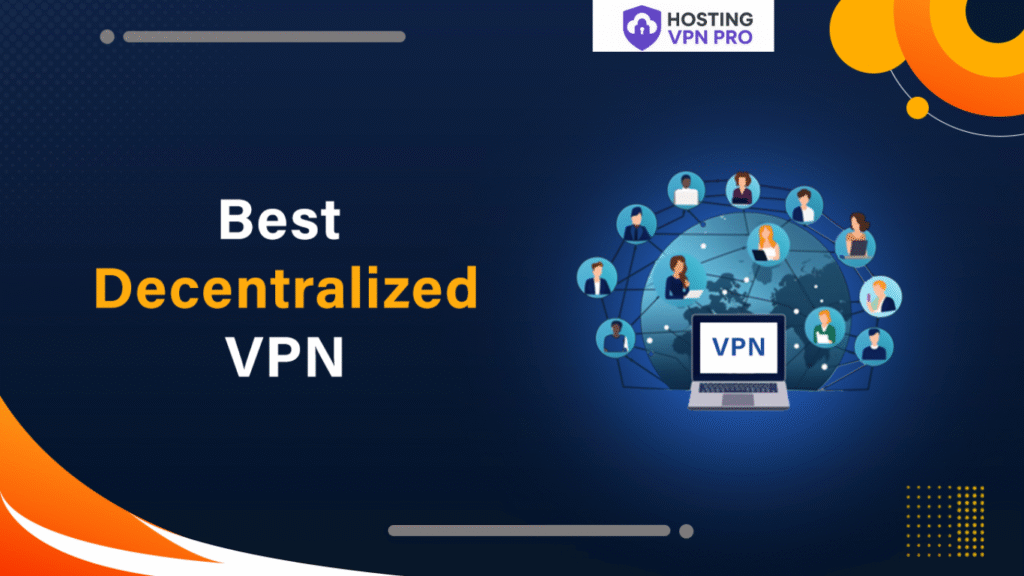Previously the internet was a place of freedom but today, there are hackers, monitoring and data hungry companies. Social platforms storing personal data to government surveillance online surfing, thought of private internet seems like impossible.
To cope with this, a new concept is arising–Decentralized VPNs (dVPNs). Like traditional VPNs which depend on central servers handled by companies. Decentralized VPNs use blockchain technology to provide a more secure and transparent network.
Table of Contents
Understanding Decentralized VPNs (dVPNs)
A decentralized VPN (dVPN) is an advanced version of traditional VPNs, made to provide tight security, privacy and control.dVPNs use a network of independent nodes powered by blockchain technology, this ensure that noone get your digital footprints or control your online activity. Traffic is encrypted and rooted through numerous nodes making it almost impossible to track.

The Importance of Decentralized VPNs
Today we are living in a digital world, where privacy and security is the most important thing to focus on. Decentralized VPNs (dVPNs) spread traffic across a network of independent servers powered by blockchain technology.
- Centralized Risks-Traditional VPNs, operated by private companies. If forced by governments, they may hand over data.
- Censorship problems-Decentralized vpns make it nearly impossible to block all servers.
Also Read- Best Free VPN Services 2025 – Browse Safely Without Worry
How Decentralized VPNs Actually Function
Decentralized VPNs act by routing internet data through a network of independent nodes.This blockchain technology makes sure that all financial transactions stay safe and secure. By using blockchain technology, data secure making it impossible for hackers to trace your activity.dVPNs gives increased privacy.
Benefits of Blockchain-Powered VPNs
Blockchain-Powered VPNs provide an extra layer of privacy and security for internet users. They delete the need for a single central provider. Users can have access to restricted content worldwide. Blockchain verification ensures that no data breach occurs. Increasing cybercrimes, Decentralized VPNs provide a trusted, secure and private network.
- Total Privacy
- Censorship Resistance
- Transparency
- Enhanced Security
The Most Promising dVPN Projects Right Now
Several projects are on the cards in transforming online privacy. Orchid (OXD) allows users to pay peer to peer networks.Sentinel dVPN uses cosmos blockchain for secure and community driven networks.There are many projects are going underway to take shape for the future.
- Orchid (OXT)-A blockchain VPN where users pay with OXT tokens to access data.
- Sentinel dVPN-A community-driven decentralized VPN.
- Deeper Network-Adds VPN with cybersecurity.
Hurdles Facing Decentralized VPNs Today
Since the network depends on independent nodes, it affects internet speed and makes it sluggish. Many users still use traditional VPNs just because of the easy interface. Technical knowledge is needed to manage dVPNs which can dishearten new users.
- Speeds may Decrease.
- Most people still trust big VPN brands instead of blockchain solutions.
- Technical knowledge.
How Decentralized VPNs Are Shaping the Future of Privacy
Decentralized VPNs (dVPNs) are changing online privacy and giving access again in the hands of users. As online cybercrimes are increasing, more users are finding secure and safe vpns to protect their data. Just think of a world where internet traffic is not routing through owned VPN but instead of a trusted and more secure blockchain system.
FAQs
What is a decentralized VPN?
A decentralized VPN (dVPN) is a VPN powered by blockchain where your traffic is routed through independent user nodes instead of centralized servers.
How is a decentralized VPN different from a traditional VPN?
Traditional VPNs rely on centralized servers owned by a company. Decentralized vpns are powered by blockchain and use distributed nodes, offering more transparency and privacy.
Are decentralized VPNs legal?
Yes, in most countries they are legal, but in regions with internet restrictions, both centralized and decentralized vpns may face bans.
Which is the best decentralized VPN?
Some popular options include Orchid, Mysterium, Sentinel, and Deeper Network. Each has unique features.
Are decentralized VPNs faster than normal VPNs?
Not always. Speeds depend on node quality. Some users report slower speeds compared to top centralized VPNs.
Can decentralized VPNs be blocked by governments?
It’s much harder because IP addresses are constantly changing across thousands of independent nodes.
Do I need crypto to use a dVPN?
Yes, most blockchain vpns require payments in tokens like OXT, DVPN, or ETH.
Is it safe to use a blockchain VPN?
Yes, dVPNs provide peer-to-peer encryption and blockchain transparency, making them very secure.
Who runs the nodes in decentralized vpns?
Anyone can run a node by offering bandwidth in exchange for crypto rewards.
Should I switch from my current VPN to a decentralized VPN?
If privacy and censorship-resistance are your top concerns, exploring the best decentralized VPN options is worthwhile.


